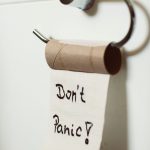Anxiety Stopping you from Sleeping? 15 Tips to get you a Better Night’s Sleep!
An inability to sleep is a big problem for many people in these challenging times. Exercise will help, but unfortunately, most people still find that they can’t shut their minds off when they go to bed.
Let’s see how we could all tighten up our habits and sleep routines to ensure better quality sleep.
Beware of news & social media before bedtime: what you put into your head before bedtime is just as important as what you put into your body. Would you have a coffee before bed? Don’t look at your phone or device last thing at night. Remember to keep your mind relaxed before sleep. Do not watch the news before bed: what you think about before sleep ruminates in your subconscious mind all night and we wake up in that very same state/feeling. Gratitude before bed is good as we wake up feeling grateful.
Meditation: is great before bed. It slows down your brainwaves. Remember, meditation isn’t about getting rid of thoughts. It’s about slowing down the number of thoughts that come and go and learning to be at ease with your mind. You can reset with meditation. I have a free meditation on my website which teaches you how to meditate and slow down your brainwaves. Give it a go!
Breathe: start slow breathing and see tangible results. Practicing long slow breaths (8-8-8): breathe in for 8 seconds, hold for 8 seconds and breathe out for 8 seconds and pay attention to how you feel calmer and sleepier. This is a very clever trick as it reduces the amount of oxygen going to the brain and thus forces it to slow down its activities and stops it from wiring and firing all over the place!
Pattern Interrupt: what this means basically is when you feel anxious break it, break the pattern. Do something to calm down. Focus on something tangible like your breath, counting breaths or taking your pulse.
This works because a lot of your senses are engaged and this is good because your brain has only a certain amount of RAM (Random Access Memory) per second, and that uses up your RAM memory in your brain and crowds out any freak out noise.
Electrical appliances: Remove phones and phone chargers from your bedroom. They operate on different electrical frequency from our bodies, this can cause disruption and confusion to our energy field. It can also put our brains into overdrive trying to figure out and decode these electrical impulses that do not belong in our bodies or heads. Allow you brain to switch off!
Take Action: if there is an actual problem or situation you have (as opposed to imaginary) tackle it head on. Do not allow room for avoidance, procrastination or rumination in your head. This just allows space for worry looping, fear, anxiety and overwhelm. Take action, small steps, any steps!
Anchor in a positive thought: if you are struggling to sleep and have worries and fears running you can disarm them by thinking of a place where you feel really happy, centred and grounded. Your favourite place to be. Now, go back to a time you were there and get into the feeling you had. This creates a happiness state. We can make or break a state in seconds. This also gives your mind an explanation, a reason for being in a heightened state.
Electrical appliances: Remove phones and phone chargers from your bedroom. They operate on different electrical frequency from our bodies, this can cause disruption and confusion to our energy field. It can also put our brains into overdrive trying to figure out and decode these electrical impulses that do not belong in our bodies or heads. Allow you brain to switch off!
Reading: is a great way to bring about sleepiness. Of course, read the right material like a good book or some inspirational work to counteract any negativity going on. Connect with the characters in a novel is a great way to relax the body and mind.
Diet: what we put into our bodies before bedtime is so important. Watch out for sugars and caffeine in particular. In order to steady the ship before bedtime get decaf tea and coffee. Caffeine makes anxiety worse!
Exercise: this is one we see and hear over and over again but it’s not always clear as to why! Well exercise is one of the most powerful anti-anxiety techniques. It burns off excess adrenaline and cortisol (stress hormones) that we don’t need. Once they are burned off during the day the body can relax and sleep at night.
Don’t get into bed until you’re actually sleepy: Let your body, not the clock, dictate when you get into bed. If you go to bed before your body’s ready for sleep, you’re likely to end up worrying, which makes it even harder to sleep.
If you can’t sleep, get out of bed until you’re sleepy: If you wake up in the middle of the night and can’t fall back asleep, don’t lie there fighting it. Instead, get out of bed until you’re sleepy again. You could read or watch some of your favourite comedy. The worst thing you can do is stay in bed worrying about not sleeping. Because this trains your mind to associate fear and worry with your bed, this is not a good idea!
Pick a consistent wake-up time: when we continually change our wake-up time, we contribute to what’s called social jet lag. This occurs because your body’s main signal for feeling sleepy is how long you’ve been awake. If you’re waking up at different times throughout the week, your body is never going to develop a consistent pattern of sleep.
Don’t sleep in: When you first wake up in the morning, your brain is still ‘coming online’ so to speak. As a result, when you lay in bed after your alarm, your chances of becoming anxious go up. The best way to avoid this early morning anxiety is to get out of bed and get going straight away.



